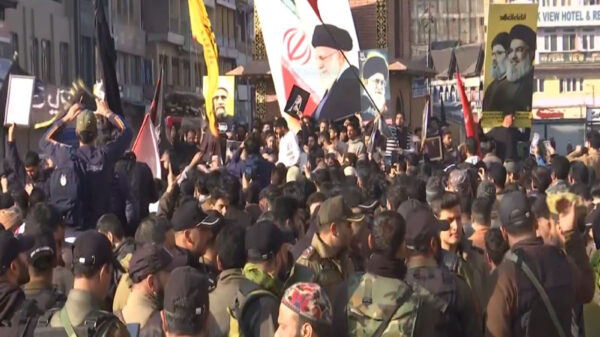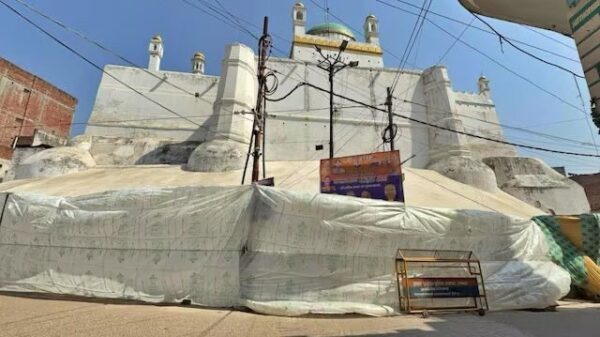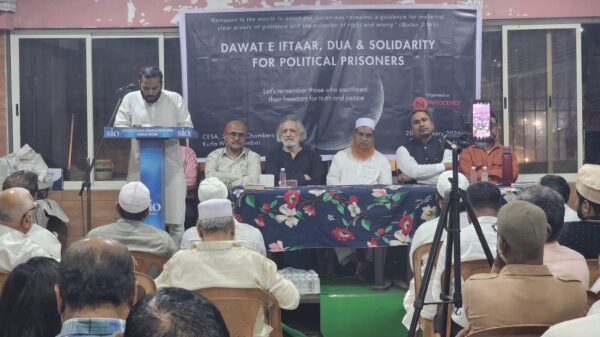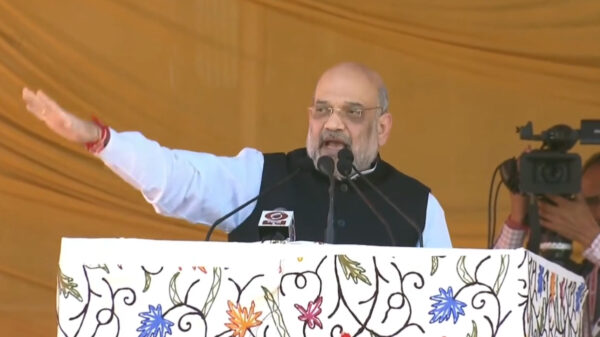by Nabeel Ahmad
Though not explicitly stated in the Qur’an, waqf has been extensively used in Islamic history to assist with community development and support. The word “Waqf” comes from the Arabic word “Waqafa,” which implies to pause or hold. One of the important characteristics of the waqf is “perpetuity,” i.e., the property designated as a Waqf is eternally owned by the divine and can only be used for a specific charitable purpose. Prophet Muhammad (peace be upon him) established the first waqf in Islamic history, and since then, Muslims have subsequently carried on the waqf practice.
In India, too, Muslims have carried out the practice of Waqf for centuries, and there have been several bills, regulations, provisions, and amendments. Mutawallis under Qadhis (magistrate/judge of Shari‘ah Court) handled Waqf properties personally, and this tradition remained under Muslim rulers in India. During colonial rule, the British maintained the existing administrative framework at first, but they ceased the policy in 1810 and provided religious autonomy to its affairs, letting it regulate the issues and properties on its own.
The regulation and independence of Waqf properties have been a point of contention even for decades now, and there have been multiple attempts to improve the working of waqf properties through various amendments to the existing Waqf Act of 1954. The concern escalated in the Muslim community when the Union government proposed the bill on August 8, 2024, introducing amendments to the existing Waqf Act of 1995. The bill is criticised by the opposition parties, community leaders, activists, and legal experts, stating that it undermines minority rights and poses a risk of misuse.
A Brief History of Waqf
British Colonial Period and Regulation of Waqf:
In 1810, the Privy Council ruled that the Waqf was invalid for charitable purposes if it benefitted the descendants of the donor. This was a direct conflict with the Islamic principles of Waqf. To address this, the British introduced the “Wakf Validating Act of 1913”, which legitimized family waqfs (also known as “waqf-alal-aulad”), allowing endowments that provided for both charitable purposes and the descendants of the founder. This legislation laid the groundwork for more structured governance of waqf properties.
Post-Independence Period:
After India gained independence, the “Wakf Act of 1954” was introduced, marking the first major attempt to regulate waqf properties at the national level, which led to the establishment of State Waqf boards for each state and a central waqf council. The Waqf Act of 1954 underwent amendments in 1959, 1964, 1969, and 1984, ultimately leading to its repeal and replacement by the Waqf Act of 1995. Currently, the Waqf Act of 1995, amended in 2013, looks after the management of Waqf in India. The Waqf (Amendment) Act of 2013 brought stricter regulations aimed to modernise the management of waqf properties, increase transparency, and impose penalties for unauthorized use or encroachment. The bill also sought to strengthen the role of the Central Waqf Council and mandate better record-keeping of waqf properties.
Recent Developments:
On Feb 18, 2014, the then minority affairs minister, K Rahman Khan, proposed the Waqf Properties (Eviction of Unauthorised Occupants) Bill 2014 in Rajya Sabha in an effort to establish a system for the removal of unlawful occupants from properties owned by waqf. However, in August this year, the bill was repealed by the government amidst strong condemnation from the opposition. The union government then proposed amendments to the Waqf Boards Act 1995, sparking a political slugfest and unrest in the Muslim community. The bill, featuring more than 40 amendments, aims to eliminate various clauses within the current Waqf Act, which regulates Waqf boards. Some of the most concerning amendments are the diminishing Waqf Board Authority, owers to District Collectors, a distorted version of the definition of waqf, and omitting the provision of “waqf by user”.
Implications
The concept of perpetuity is fundamental in the Waqf system. When a property is set to be a Waqf property, the waqif loses ownership rights, and the property goes to the Almighty forever. The standing of Islamic law regarding waqf-alal-aulad (endowment for the donor’s family) property is quite clear as the property remains irrevocable; therefore, once it is given to the waqf, it is not inheritable. The bill’s amendments bring the provision of inheritance, which visibly contradicts the Waqf system. Any waqf property donated for a social cause, such as a foster home, if claimed by the inheritor, will create an adverse effect on the cause for which it was originally donated. This perpetuity ensures that waqf assets remain communal resources for social welfare across generations, sustaining essential services like education and healthcare. The bill’s provision of inheritance claim will make waqf provision of charitable cause lose at the expanse of rights. The cause of providing for the family and coming generations is considered a pious act where the waqif donates the property to the family. Allowing inheritance or reclassification of waqf properties could privatize these assets, depriving communities of stable, long-term benefits.
Islamic law acknowledges “waqf by user” or “waqf by reputation,” allowing properties historically used for waqf purposes to be recognized even without formal documentation, a practice also upheld in the existing Indian waqf laws. However, the amendment in the bill makes it invalid. Such amendments may lead to situations where valid waqf properties will be taken away by forces by the miscreants and create a financial pushback to the already economically driven Muslim population. This will open the door for exploitation, including potential property grabs by unscrupulous parties or government entities. Such derecognition would not only undermine the legitimacy of longstanding waqfs but also threaten the security of community resources, leading to significant social and economic disruptions.
Inamurahman Khan, Assistant Secretary, Jamaat e Islami Hind, who looks after the department of Auqaf in JIH, says, “The bill is discriminatory in its true sense and is against religious freedom. The bill proposes a great threat to the revenue-generating waqf assets like farming land, commercial land, shops, and land on lease or rent. However, most of the prime revenue-generating properties of Waqf are already encroached on by the state, corporations, and land mafias, which are supposed to provide a hefty amount of profit.”
Section 3 C (2) of the bill gives arbitrary powers to the collector to decide if a property is a waqf or government land. Hence, it empowers the collector to make decisions in favour of the government, modify revenue records, and direct the waqf board to make the needed adjustments in the record. If such decisions favour government claims, waqf boards will lose properties that generate revenue for charitable and community purposes. This is strongly opposed by the AIMPLB (All India Muslim Personal Law Board), with the allegations of this power being misused by vested interests for grabbing property.
One of the amendments in the new bill abolishes the office of the Survey Commissioner of Waqf, which has been specifically made to look after the survey of Waqf properties. This absence of regulatory support would likely push waqf institutions into prolonged and costly litigation to defend their assets. Such legal expenses could divert funds from essential community services traditionally supported by waqf properties, straining financial resources and impeding the waqf’s ability to contribute to social welfare.
Besides, It is a cleverly crafted myth, not a fact, that waqf boards are the third biggest landowners in India, after the defence and railways departments. Dr. Syed Zafar Mahmood, President of the Zakat Foundation of India and member of the Sachar Committee, explains in an interview with the Nous Network that the only authentic data with regard to the number of properties lies with the Sachar Committee report. Sachar Committee calculated such lands in 2006 to be about six lakh acres. In contrast, Hindu trusts in three states of India (Tamil Nadu, Andhra Pradesh, and Telangana) hold more than 10.37 lakh acres of land, which is more than the land of the Waqf Board across the country.
In 2006, the Sachar Committee also reported that Waqf boards own land worth Rs 1.2 lakh crore, which has the potential to create a revenue of Rs 12,000 crore yearly for the betterment of the Muslim community, while they could make only 163 crore allegedly due to mismanagement and encroachments. The Waqf Amendment Act 2013 mandates surveys of waqf properties every ten years; the attempt made in 2014 was left unfinished because of limited budgets and a shortage of appointed survey commissioners in several states, leaving waqf properties again in a situation of uncertainty, with many still unaccounted for, poorly managed, or prone to encroachments and conflicts.
Waqf properties have traditionally been a vital source of socio-economic support for the Muslim community in India, funding education, healthcare, and various welfare programs. However, the introduction of the recent waqf amendment bill by the Indian government is outrightly an attempt to further push Muslims to the margins and, hence; has caused considerable unrest within the Muslim community. Being opposed by the intellectuals, experts, activists, leaders, and the masses, the bill is seen as a stab to centralize control and potentially seize Muslim properties, raising serious concerns about the economic and social consequences. The discomfort stems from the belief that the bill’s amendments pave the way for the appropriation of valuable Waqf assets, which could undermine the community’s welfare programs and exacerbate their economic marginalization.


































































